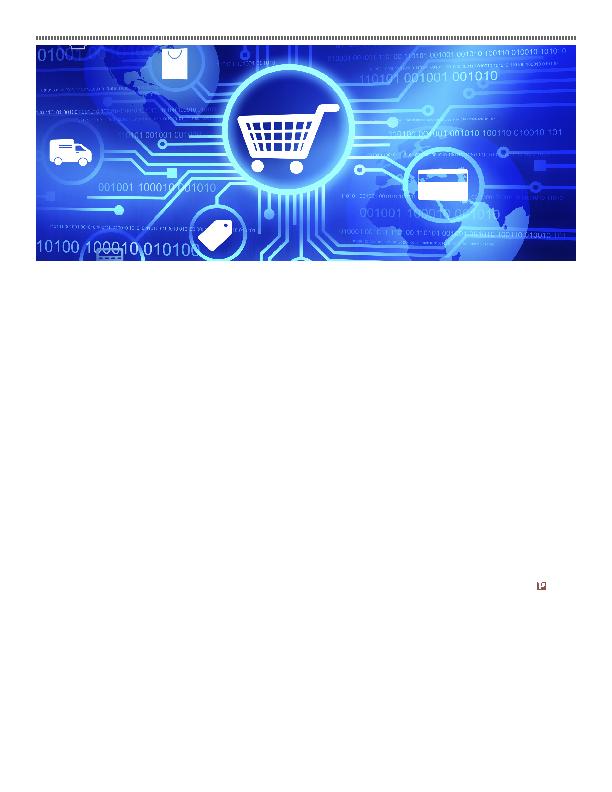
comparison websites
practices and to supply information,
documents or statements.
Indeed, starting in June 2015, the
Commission has sent out rather data
intensive questionnaires to a wide
range of stakeholders across the EU,
planning to publish a preliminary report
in mid-2016. Then, following a public
consultation on the preliminary report,
the Commission expects to publish the
final report in the first quarter of 2017.
If, after analyzing the results, the
Commission should identify specific
competition concerns, it could
open case investigations to ensure
compliance with EU rules on restrictive
business practices and abuse of
dominant market positions.
Only the outcome of this inquiry
will reveal its real impact on the
existing legal framework of internet
sales in the EU. However, companies
and businesses involved in this inquiry
should definitely expect some changes
in the regulation of commercial
practices resulting in barriers to cross-
border online sales and should be ready
to revise their present agreements.
In particular, the following online
sales restrictions will be, most probably,
under the attentive scrutiny of this
investigation:
the distribution chain with the aim
of limiting the geographical scope
of online sales. The Commission
is firmly determined to tackle and
stop "unjustified geo-blocking" (i.e.
practices used by online sellers
for commercial reasons and often
resulting from specific contractual
provisions, when consumers are
either denied access to a website
based on their IP address/location/
credit-card details or re-routed to a
local store with different prices);
the use of third party platforms,
especially in exclusive and/or
selective distribution agreements (i.e.
"platform bans").
will certainly be in the near future a hot
topic, as competition concerns could
arise in connection with contractual
clauses imposing restrictions on
distributors in the use of third party
platforms. These are restrictions that are
very common in selective distribution
systems and that, at present but
probably not for much longer are
allowed under § 54 of the Commission's
Guidelines (Vertical Block Exemption
Regulation "VBER" No. 330/2010).
In fact, this provision appears at
odds with some recent court decisions
Judgement of October 13, 2011) and
sports and leisure equipment sectors
(Adidas case: German Federal Cartel
Office proceedings closed in June 2014),
where the European Court of Justice and
the German Antitrust Authority have
ruled that online (general) bans require
"objective reasons," and that "the aim
to maintain a luxurious brand image
is not a legitimate aim for restricting
competition through a de facto ban of
internet sales."
Based on these antitrust precedents
and also on the possible results of the
Commission's inquiry, the VBER and
relevant guidelines (despite having
been updated only five years ago) will
probably be subject to further revision.
In the light of this trend, companies
operating in the e-commerce sector
will certainly need to check up soon on
their existing distribution agreements
and seek specialized legal guidance for
revising or setting up the same.
Jobs, Growth, Fairness and Democratic Change (15 July
2014).
make it happen 6 May 2015).
pursuant to Article 17 of Council Regulation (EC) No.
1/2003.